| Name | Richard Thomas |
| Gaming Setup Description | The Evolution of Nursing: From Tradition to Modern Practice Historically, nursing was considered a low-status occupation, primarily online class help services performed by women within families or religious institutions. In many cultures, care for the sick was a community responsibility, and nursing was not recognized as a distinct profession. This began to change in the 19th century with figures like Florence Nightingale, who revolutionized nursing by advocating for formal education, hygiene practices, and a more scientific approach to patient care. Her work laid the foundation for modern nursing and helped establish it as a respected profession. Today, nursing is recognized as a dynamic and highly skilled profession that requires formal education and ongoing professional development. Nurses are educated through diploma programs, associate degrees, or bachelor’s degrees, with many advancing to master’s or doctoral levels. This education prepares them to work in a wide range of healthcare settings, including hospitals, clinics, community health centers, schools, and even patients’ homes. The role of the nurse has expanded beyond bedside care to include leadership, research, education, and policy-making. One of the most significant developments nurs fpx 6109 assessment 3 in nursing is the rise of specialized roles. Nurses can now pursue specialties in areas such as pediatrics, geriatrics, oncology, critical care, and mental health, among others. These specialized roles require additional training and certification, allowing nurses to provide expert care in their chosen field. Nurse practitioners, for example, can diagnose and treat illnesses, prescribe medications, and manage patient care independently or in collaboration with physicians. The impact of technology on nursing cannot be overstated. Advances in medical technology have transformed the way nurses deliver care. Electronic health records, telemedicine, and mobile health apps have made it easier for nurses to track patient information, communicate with other healthcare providers, and monitor patients remotely. While technology has enhanced efficiency and accuracy in nursing care, it has also introduced new challenges, such as the need for nurses to adapt to constantly changing systems and maintain a balance between technology and personal interaction with patients. The nursing profession is also characterized by its strong emphasis on ethical practice. Nurses are guided hcm fpx 5310 assessment 1 by a code of ethics that emphasizes respect for human dignity, patient autonomy, and confidentiality. They are often at the front lines of patient advocacy, ensuring that individuals receive appropriate care and that their rights are respected. This can be particularly challenging in cases where patients cannot make decisions for themselves, or where there are conflicts between patients, families, and healthcare providers. Nurses must navigate these situations with compassion, integrity, and a commitment to doing what is best for the patient. The global nursing shortage is another pressing issue that the profession faces. Many countries are experiencing a critical lack of nurses, which has been exacerbated by the COVID-19 pandemic. The shortage has placed immense pressure on the existing workforce, leading to burnout and high turnover rates. Efforts are being made to address this issue through recruitment, retention strategies, and initiatives aimed at increasing the capacity of nursing schools. However, the demand for nurses continues to outpace supply, particularly as populations age and the need for healthcare services increases. Nursing is also increasingly recognized pm fpx 5332 assessment 1 as a global profession, with nurses playing a vital role in addressing health disparities and improving access to care in underserved areas. International collaboration among nursing organizations, governments, and non-governmental organizations has led to initiatives aimed at strengthening nursing education and practice worldwide. These efforts are essential to achieving global health goals, particularly in low- and middle-income countries where healthcare resources are limited. The future of nursing is bright, with many opportunities for growth and innovation. As healthcare becomes more complex and patient needs evolve, nurses will continue to play a pivotal role in shaping the future of healthcare. The profession’s emphasis on lifelong learning ensures that nurses will remain adaptable, capable of meeting the challenges of tomorrow’s healthcare landscape. In conclusion, nursing has come a long way from its humble beginnings, and it continues to be a vital and ever-evolving profession that is essential to the health and well-being of individuals and communities worldwide. |
